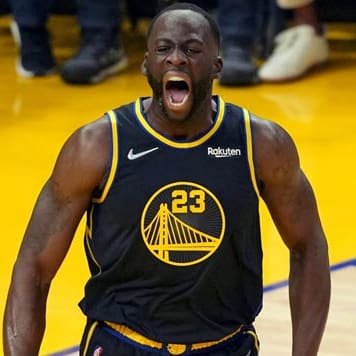In Part I of our Rookie Report Card series, I looked back on the top four picks in the 2018 draft. Led by Deandre Ayton, it's a strong start to what was, at the time, a draft marked by some level of uncertainty at the top. With their debut seasons now in the rear-view, all four of Ayton, Marvin Bagley, Luka Doncic and Jaren Jackson, Jr. are on an upward trajectory, with Doncic having already made the public star turn that typically requires more spadework.
Moving into the meat of the lottery, picks five through eight bring a little more variance. Thanks to an extended mid-season hot streak, Young enjoyed the most success of the group, but Wendell Carter had his moments before getting hurt, while Collin Sexton ended up surpassing expectations as a scorer.
As for Mo Bamba? He was stuck in a limited role behind Nikola Vucevic before a stress fracture prematurely ended his season, so the jury is very much still out. More on that below. Let's get to the grades:
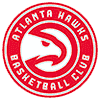 Trae Young, Hawks
Trae Young, Hawks
Key Numbers: 80 GP, 30.9 MPG, 19.1 PPG, 3.7 RPG, 8.0 APG, 41.9% FG, 32.6% 3PT, 17.0 PER, 40.4% AST, 28.3% USG
Best game: 33 PTS (12-18 FG, 2-6 3PT, 7-7 FT), 12 AST, 7 REB, 1 STL, 2 TO (4/03 vs. PHI)
Best 5-game stretch: 34.8 PTS, 10.4 AST, 4.4 REB, 0.4 STL, 4.4 TO, 47% FG, 49% 3PT, 92% FT (2/22-3/01)
Grade: B+
Had we gone through this exercise on, say, Thanksgiving, Young probably gets a C-, maybe even a D+. At Christmas? Giving Young a D might've been generous. By All-Star Weekend, though, Young had begun his ascent from the depths of the rookie point guard hell, averaging 19.0 points, 8.0 assists and, most importantly, hitting 36 percent of his threes from the start of January until the break. After going for 25 and 10 in the Rising Stars Game -- by far the best stage to accurately judge young players -- Young picked up where he left off, scorching still-skeptical opponents to the tune of 24.7 points and 9.2 assists with 44/35/88 shooting splits over his final 23 games.
By season's end, Young had transformed what once was a Michael Carter-Williamsian stat line into a very respectable 19.1 points, 8.1 assists and 3.7 rebounds per game on bad-but-not-terrible 42/32/83 shooting. Throw out the first two months and Young hit better than 36 percent of his threes and nearly 44 percent of his field goals.
Given his historically poor summer league and wild swings in production at Oklahoma, it's not easy to dismiss Young's rocky start, but his consistency over the last four months is remarkably encouraging. Young had just two single-digit scoring efforts over his final 53 games after failing to reach double-figures eight times in a 15-game span during a ghastly November-December slump. Even on his bad nights late in the season, Young found ways to be impactful, like handing out 16 assists to help offset a 5-of-19 shooting night against Milwaukee. Or wriggling his way to the free throw line 16 times, to go with 11 assists and a season-high 10 boards, amid a 4-of-14 effort against Brooklyn.

Young's best stretch of the year came just after All-Star Weekend. Beginning with Atlanta's first game out of the break against Detroit, Young went for 30, 23, 36, 36, and 49 points in consecutive games, hitting more than 4.5 threes per contest and three times earning double-digit free throw attempts. Young topped out with his best scoring night of the year, going for 49 points on 33 shots in a four-overtime thriller against Chicago. Young added 16 assists and eight rebounds in 56 minutes, though he turned it over nine times.

Along with continuing to refine his shot selection, taking care of the ball will be a point of emphasis this summer. He ranked behind only James Harden and Russell Westbrook in turnovers per 100 possessions, though that's partially forgivable when factoring in his 28.4 percent usage rate -- a high number for any rookie and good for 22nd in the league.
But turnovers aren't Young's biggest concern in the long-term. For as good, and sometimes great, as he was offensively, Young was arguably the least-effective individual defensive player in the league as a rookie. Defensive box plus/minus pegged Young as the NBA's seventh-worst defender, with the Hawks hemorrhaging 117 points per 100 possessions with him on the floor.
Young isn't lazy on that on that end, but his slim-shouldered, 180-pound frame puts him at a nightly disadvantage, making him easy fodder in high pick-and-rolls and a frequent switch target. Overall, opposing players shot 4.0 percent better than usual from the floor when guarded by Young, including a laughable 17.1 percent better inside six feet. Per NBA.com, among the 50 most frequent pick-and-roll ball-handler defenders, Young ranked second-last in field goal percentage allowed and was the only player to surrender a full point per possession in those situations. Surprisingly, Young was a little more passable as an isolation defender, but that's something the Hawks want to put to the test as infrequently as possible.

Even after just 81 games, it's clear Young has the modern skill set to become one of the best offensive guards in the league. His efficiency and decision-making should continue to improve, and he's already in rare company in terms of raw production, joining Doncic as one of the seven rookies in NBA history to reach 1,500 points, 400 assists and 70 steals. If you need a refresher from Part I, that's a list that also includes the names Jordan, James, Lillard, and Iverson.
Whether Young can become anything above a well-greased turnstyle on defense, though, will determine whether his career tracks closer to that of Lillard, or if he ends up as a hypermodern Isaiah Thomas.
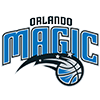 Mo Bamba, Magic
Mo Bamba, Magic
Key Numbers: 47 GP, 16.3 MPG, 6.2 PPG, 5.0 RPG, 1.4 BPG, 58.7% FT, 7.0 BLK%
Best game: 13 PTS (6-8 FG, 1-2 3PT, 0-2 FT), 7 REB, 2 BLK, 0 TOV, 1 PF (10/17 vs. MIA)
Best 5-game stretch: 10.0 PTS, 5.8 REB, 1.6 BLK, 1.0 AST, 56% FG, 25% 3PT, 80% FT (11/04-11/11)
Grade: C+
In the lead-up to the draft, Bamba was one of my favorite prospects in the class, and while Orlando hasn't exactly been a hotbed for development, I liked the fit. I envisioned Bamba and Vucevic as a tag-team at center, with the expectation that the Magic would repeat their annual ritual of falling out of the playoff race, perhaps even prompting them to deal the expiring Vucevic. Instead, Vucevic came out red-hot in a contract year, locking in his first All-Star bid and leading Orlando to its first playoff berth of the post-Dwight era.
Vucevic's success isn't to blame for Bamba's relative struggles, but with the veteran staying completely healthy and having the best season of his career, the No. 6 pick's opportunities were limited. Bamba was a part of the regular rotation from Game 1, though the 25 minutes he logged in the opener against Miami ended up being his second-highest total of the season, and he reached the 20-minute plateau only six times in 47 games. Steve Clifford typically kept Bamba in the 14-to-18-minute range, exclusively staggering him with Vucevic. Every one of Bamba's 766 minutes came with Vucevic on the bench.
That trend likely would've continued, had Bamba not been diagnosed with a stress fracture in his lower left leg in early February. A few days later, Bamba underwent a procedure to address his tibia, effectively ruling him out for the remainder of the year a week before the All-Star break. As of late-April, Bamba had progressed to jogging and on-court shooting, and he hopes to participate in summer league in July.
On a per-game basis, Bamba's numbers range from mostly unremarkable to slightly disappointing, but his one elite skill at the college level appeared to translated to the NBA. Bamba ranked sixth in the league in block rate (min. 700 MP), swatting 4.1 shots per 100 possessions -- more than Hassan Whiteside, Rudy Gobert and Anthony Davis. However, the wire-thin Bamba was an average rebounder, and he was considerably less-efficient than that group on the offensive end.

As expected, Bamba cleaned up around the rim, but he struggled in the short-mid-range and hit only 30 percent of three-point attempts. That was actually an improvement over his 27.5 percent mark last season at Texas, but Bamba still has a ways to go as a floor-spacer, even if his mechanics are solid for a player with his record-setting length.

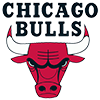 Wendell Carter, Bulls
Wendell Carter, Bulls
Key Numbers: 44 GP, 25.2 MPG, 10.3 PPG, 7.0 RPG, 1.8 APG, 1.3 BPG, 48.5% FG, 18.8% 3PT, 79.5% FT, 15.2 PER
Best game: 25 PTS (9-21 FG, 2-3 3PT, 5-6 FT), 8 REB, 5 AST, 3 BLK, 3 STL, 1 TOV (10/31 vs. DEN)
Best 5-game stretch: 15.6 PTS, 10.6 REB, 2.8 AST, 2.6 BLK, 1.4 STL, 48% FG, 57% 3PT, 90% FT (10/31-11/07)
Grade: B
Like Bamba, Carter's season was cut short by an injury around the All-Star break. But prior to damaging a ligament in his left thumb, Carter established himself as one of the more productive bigs in the class. A starter from opening night on, Carter got off to a slow start offensively, but he picked up steam a couple weeks into the season, scoring in double-digits in 11 of 13 games between Oct. 27 and Nov. 21. Carter registered five double-doubles in that stretch, topping out with 14 points, 13 rebounds, four blocks and two steals in a loss to Houston on Nov. 3.
While his scoring came and went over the next two months, Carter remained a stable producer on the other end for an otherwise-miserable defensive team, blocking at least one shot in 33 of 44 games. Those raw numbers are encouraging, but the advanced data reveals Carter was a poor post-up defender who often found himself in foul trouble. He picked up at least four personals in nearly half of his games, fouling at rate of 6.6 per 100 possessions -- eighth-highest in the league among players with at least 1,000 minutes.
Offensively, Carter was used mostly as a complementary piece, with a usage rate south of 20 percent. He finished about as well as expected around the rim, but struggled in one-on-one situations, scoring just .62 points per possession (20-71 FT) on 88 post-ups. Unsurprisingly, Carter found more success as a roll man, scoring 1.17 points per possession and ranking in the 65th percentile, despite playing alongside a stable of below-average passers.

Coming out of Duke, passing and spot-up shooting were two of Carter's strengths and a major part of the reason he drew comparisons to Al Horford. Carter ended up going just 6-of-32 (18.8%) from beyond the arc and 12-of-41 overall in spot-up situations, a rather disappointing development after he drained better than 41 percent of his attempts -- 19-of-46 -- as a freshman in Durham. Five of those six makes came within the first 12 games of the season, and Carter finished on a 1-of-19 skid before suffering the thumb injury.

As a passer, Carter showed signs of secondary distributing ability, handing out 2.2 assists per game through his first 20 contests and registering at least three assists in seven of those games. But as Paul Steeno of SB Nation notes, Chicago veered away from Carter's playmaking once Jim Boylen took over, with his assist rate dropping from 13.7 percent to 9.5 percent after the switch. Carter had four assists in Boylen's debut on Dec. 4, but he recorded more than two assists only once in the subsequent 19 games.

Even with the up-and-down production and defensive flaws, Carter earns a solid B. The Bulls were as poorly managed, from top to bottom, as any team in the league last season, and a mid-season coaching change only complicates the learning curve for any first-year player. Had Carter stayed healthy and been surrounded with more winning players -- Carter shared the floor with Cristiano Felicio more than he did Lauri Markkanen -- there's a good chance we'd look back on his season with a less-critical eye.
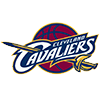 Collin Sexton, Cavaliers
Collin Sexton, Cavaliers
Key Numbers: 82 GP, 31.8 MPG, 16.7 PPG, 3.0 APG, 2.9 RPB, 0.5 SPG, 43.0% FG, 40.2% 3PT, 83.9% FT, 25.2% USG, 12.0 PER
Best game: 28 PTS (10-18 FG, 4-7 3PT, 4-4 FT), 5 AST, 4 REB, 0 TOV (3/11 vs. TOR)
Best 5-game stretch: 26.4 PTS, 2.8 AST, 2.8 REB, 0.4 STL, 1.6 TOV, 56% FG, 56% 3PT, 90% FT (3/11-3/18)
Grade: B-
I struggled with this one. On one hand, a B- feels generous for a poor playmaker who was quite literally the worst individual defender in the league, according to defensive rating, win shares and box plus-minus. On the other hand, while Sexton may have won the triple crown of bad defending, not many guys can step in and put up almost 17 points per night on pretty-good-for-a-rookie-point-guard levels of efficiency.
We'll start with the good.
Entering the league as a 19-year-old, Sexton finished with 43/40/84 shooting splits -- a massive surprise considering his three-point shot was, at best, a question mark coming out of Alabama. Sexton didn't hit a three-pointer in his first six games -- all Cavs losses -- but he appeared to gain some level of confidence after hitting multiple threes in four straight mid-November contests. By the end of December, Sexton was shooting a very respectable 36.1 percent from deep, yet he was taking fewer than two per game. He eventually settled in and gradually increased his volume to 3.6 attempts per game in January, 5.6 in February, 5.7 in March and 6.0 in April, ultimately taking at least five threes in 27 games -- 26 of which came after Jan. 1.
About half of Sexton's attempts came in catch-and-shoot situations, and the majority of his makes were what NBA.com/stats qualifies as "wide open" shots. For the season, Sexton hit just under 45 percent of those "wide open" three-point looks.

For some context, Sexton became the 15th rookie ever to shoot 40 percent from three on at least 200 attempts, and just the sixth rookie ever to hit 40 percent and average at least 15 points per game. On the latter list, he joined the likes of Steph Curry, Paul Pierce and Larry Bird.
… and also Ben Gordon. So maybe that stat isn't completely useless.
Regardless, Sexton shot the ball so well and so consistently that I felt like I had to keep him in the B range, even if he wilted in isolations and struggled to generate free throws. Sexton has the quickness to get around his initial defender, but especially early in the year he was prone to wild, out-of-control drives, often leaving his feet without a clear plan.

But outside of his surprising scoring touch, Sexton's inexperience was on display in a number of areas. Coming out of college, no one painted Sexton as the next Chris Paul or Jason Kidd, but he was rigidly considered a true point guard by position. He'd averaged 3.6 assists per game at Alabama -- a decent, if not spectacular, number for a freshman -- and at 6-2, 190, his frame was unquestionably that of a point guard.
While Sexton posted a 25.2 percent usage rate, typically operating as the Cavs' primary ball-handler, most of that usage came via shooting, rather than distributing. Especially early on, in the wake of Ty Lue's firing, Sexton's inability to set up teammates and defend his position frustrated Cleveland's veterans to the point that they essentially aired him out to the media, which The Athletic's Joe Vardon relayed in November:
It's becoming increasingly clear that when you hear a Cavs veteran talk about younger players not knowing their role, or knowing how to win, or what to do on the court, they mean Sexton. Throughout the organization, the line on Sexton is that he does not "know how to play."

At the time of Vardon's report, Sexton's assist rate sat at 13.9 percent. By season's end, it was up to 15.3 percent, a slight improvement, but nonetheless a horrific number for any point guard. In general, if Jordan Clarkson has a higher assist rate than you, something is wrong. Of the 184 players who played at least 1,000 minutes and had an assist rate lower than 17 percent this season, only 45 were guards, and only five of those guards -- Sexton, Tyler Johnson, Frank Jackson, George Hill and Quinn Cook -- claim point guard as their primary position. And if we want to go even further, Sexton is virtually* the only rookie point guard in history to average at least 30 minutes and fewer than three assists per game.
You get the point.
Defensively, Sexton also struggled early on, particularly in pick-and-rolls. Only two players in the NBA -- De'Aaron Fox and Eric Bledsoe -- were put through more pick-and-rolls than Sexton, who allowed .96 points per possession -- eighth-highest among those who defended at least 200 ball-handlers. Perhaps more concerning was Sexton's preposterously low steal rate (0.8%), which in and of itself isn't a death knell, but when coupled with the other defensive shortcomings -- plus Sexton's collegiate reputation as a tenacious defender -- becomes more salient.

By all accounts, Sexton is a hard worker whose improvement as a scorer didn't come by chance, but the Cavs have to wonder if he's best-suited off the ball in the long-term. Maybe he comes back next season with refined playmaking skills, but there are already rumbles within the organization that his best fit may be as a score-first option off the bench. That's not exactly what Cleveland had in mind with the No. 8 pick, but the Cavs may be forced to make a decision soon, should they end up with anything but the top pick in this year's draft and a chance to grab Ja Morant, RJ Barrett or Darius Garland.
*Depends how much you want to quibble over Bucky Bockhorn's (a real person) true position.







